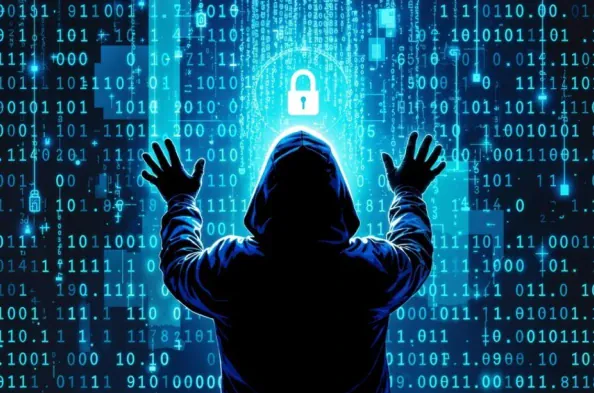In a significant and concerning event for educational institutions worldwide, PowerSchool, a well-known education technology company based in California, recently informed students and educators about a data breach that occurred in December 2024. This breach was uncovered on December 28 and specifically compromised personal information contained within the Student Information System (SIS) that is accessed through the PowerSource customer support portal. While the breach did not disrupt the general operations of the company or affect other PowerSchool products, it did expose sensitive information such as names, contact details, dates of birth, medical information, and Social Security numbers. Fortunately, no financial information, including credit card or banking details, was compromised during this incident.
Despite the gravity of the situation, there was no immediate evidence of malware or ongoing unauthorized activity within PowerSchool’s systems. The affected individuals were promptly notified and received detailed communications regarding how the breach impacted their personal information. PowerSchool initially reached out to the SIS community on January 7, revealing the extent of the breach and outlining the steps being taken to mitigate any potential risk. As part of these measures, the company announced that it would offer two years of free identity theft and credit monitoring services to those impacted by the breach. This move aims to provide additional layers of protection to those whose data was exposed.
Scope and Impact of the Breach
PowerSchool supports over 18,000 schools and districts in more than 90 countries, serving a student base that exceeds 60 million globally. Despite this extensive reach, the full extent of the data breach remains somewhat ambiguous regarding the exact number of individuals or schools affected. However, reports indicate that several districts, especially those in Virginia and California, have felt the impact. For instance, the Menlo Park City School District revealed that approximately 14,000 individuals, including both current and former students and staff, had their data compromised in the breach.
Similar breaches have also affected Canadian institutions, with numerous school boards, such as the Toronto District School Board, reporting compromised data. This prompted the Canadian Privacy Commissioner, Philippe Dufresne, to announce an investigation into the matter. He emphasized that his office expects PowerSchool to adhere to specific breach response and reporting requirements. The breach’s transnational impact highlights the widespread dependence on PowerSchool’s systems and the potential risks associated with such centralized digital infrastructure within education.
Interestingly, PowerSchool disclosed that the breach likely resulted from compromised credentials used to access its portal. This mode of entry suggests that a ransomware attack might have occurred, where attackers gained entry, stole the data, and subsequently deleted it. Thankfully, it appears that the stolen data was not further disseminated or sold, mitigating some potential long-term risks.
Response and Mitigation Measures
In response to the breach, PowerSchool initiated several actions to mitigate its effects and safeguard the impacted parties. The company offered all affected individuals two years of free identity protection and credit monitoring services to help protect against potential identity theft or fraud. These free services aim to provide some reassurance and immediate assistance to those whose personal information might have been exposed.
To prevent overloading individual schools and districts with the responsibility of notification, PowerSchool also took upon itself the role of informing the relevant state attorneys general offices, educators, students, parents, and other stakeholders about the breach. This comprehensive breach management strategy aims to reduce the notification burden on its customers, ensuring clear communication about the incident and the measures being put in place to address it. Through these efforts, PowerSchool hopes to maintain transparency and accountability while managing the fallout from the breach.
Cybersecurity Concerns in Education
The PowerSchool data breach brings to light the persistent vulnerabilities that educational institutions face in an increasingly digital world. This breach is a stark reminder of the importance of robust cybersecurity measures within the education sector. Schools and districts rely heavily on digital tools and platforms like PowerSchool to manage and store sensitive information, making them prime targets for cyberattacks. The incident underscores the need for continuous improvements in data protection protocols to safeguard sensitive information about students and staff.
Ransomware attacks and other cyber threats have become more sophisticated, posing significant risks to the education sector. As seen in the PowerSchool breach, the use of compromised credentials to access and steal data highlights the importance of implementing stringent access controls, multi-factor authentication, and regular security audits. These measures can help prevent unauthorized access and mitigate the damage caused by potential breaches.
In the months and years following the breach, the education community and regulatory bodies have closely monitored the situation to ensure compliance with privacy and data protection laws. These efforts aim to safeguard the personal information of students and staff and restore trust in the digital systems used within the education sector. The incident serves as a call to action for educational institutions worldwide to prioritize cybersecurity and invest in measures that protect their most valuable assets—their students and educators.
Looking Ahead
PowerSchool, a prominent education technology company from California, recently alerted students and educators to a data breach that took place in December 2024. Discovered on December 28, the breach compromised personal data stored in the Student Information System (SIS) accessed via the PowerSource customer support portal. Although the company’s general operations and other products were not affected, the breach exposed sensitive information like names, contact details, birthdates, medical information, and Social Security numbers. Fortunately, financial information such as credit card and banking details were not compromised.
Despite the seriousness of the breach, there was no immediate evidence of malware or ongoing unauthorized activity within PowerSchool’s systems. The affected individuals were promptly notified and given detailed information about how the breach impacted their personal data. PowerSchool first contacted the SIS community on January 7, explaining the breach’s extent and outlining steps to mitigate potential risks. As part of their response, the company offered two years of free identity theft and credit monitoring services to those affected, aiming to provide additional protection.






